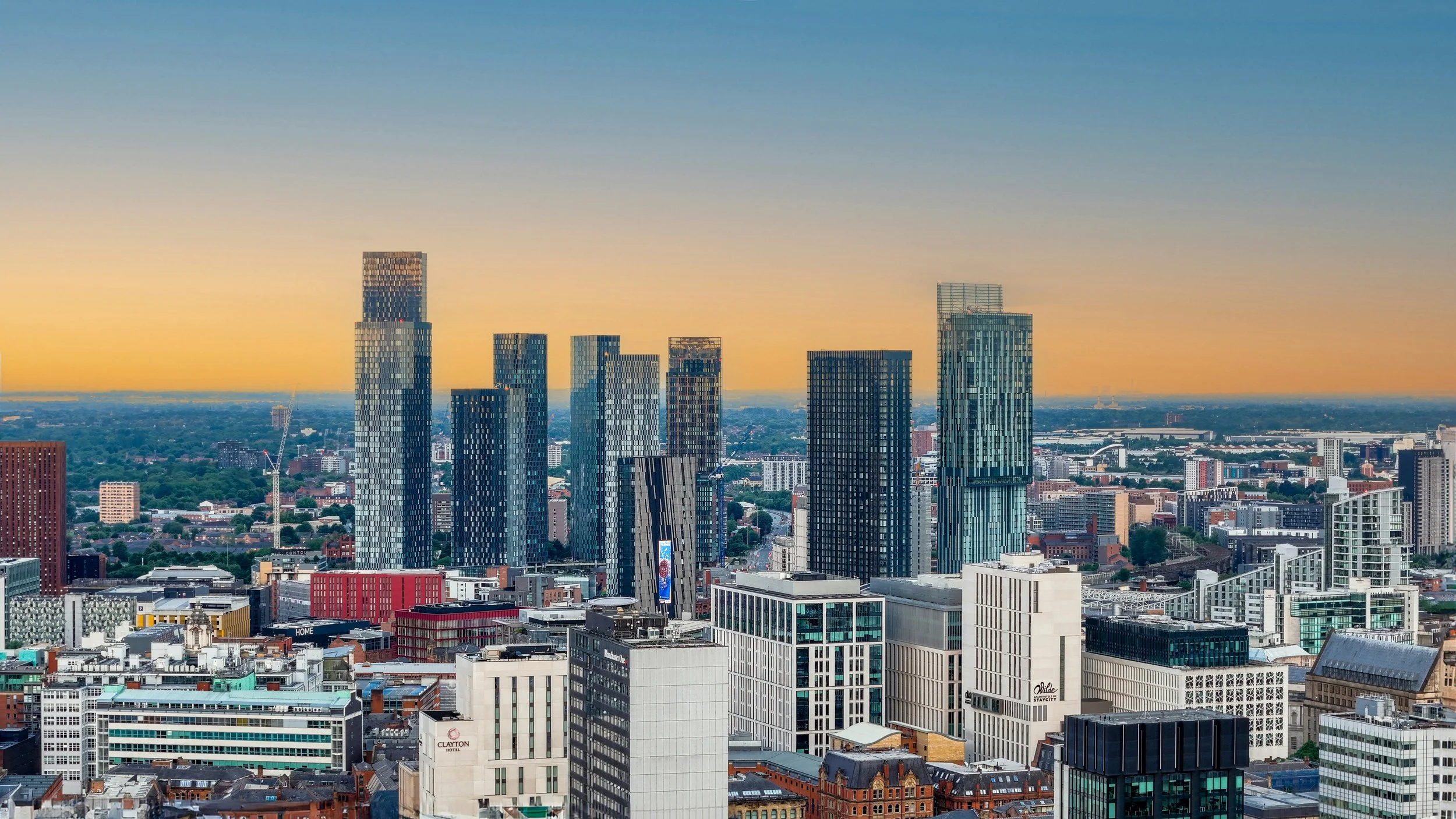Capital gains tax on commercial property
Selling commercial property in the UK can trigger Capital Gains Tax (CGT) on any profit you make from the sale (disposal). The CGT liability varies based on factors such as your business structure, how the property was used, and your overall taxable income level.
We’ve written this article for property investors and landlords who are considering selling a property and want to understand the cost implications of capital gains tax in the UK. We’ll look at when CGT is applied to commercial property, how it’s calculated, and capital gains tax exemptions and reliefs.
When is capital gains tax applied to commercial property?
As mentioned, capital gains tax applies when you make a profit from selling/disposing of a commercial property. The taxable gain is simply the difference between what you receive from the sale and what the property cost you (including the original price, any improvements, and selling costs).
CGT is incurred when you:
Dispose of a commercial property
Exchange a property (for another property, or assets, for example)
You transfer a property when restructuring a business
However, it’s worth noting that there are various exemptions and reliefs that may reduce or remove this tax bill entirely.
Calculating capital gains tax on commercial property
So, how is capital gains tax calculated? Here’s the formula:
Capital gains tax = sale price - (purchase price + allowable cost)
Let’s see how this works with an example:
| Price & Costs | Amount |
|---|---|
| Purchase price | £400k |
| Sale price | £500k |
|
Selling costs
|
£5k |
|
Property improvements
|
£20k |
|
Base cost (purchase price + property improvements )
|
£420k |
|
Capital gains (sale price - selling cost - base cost)
|
£75k |
|
Annual exemption amount
|
£3k |
|
Taxable gain
|
£72k |
This table illustrates how you calculate your taxable gain, but what you actually pay depends on your overall income level and whether the property was used for business purposes (in which case reliefs and exemptions may apply - more on these shortly).
Capital gains tax rates for commercial property
The rate of CGT you pay depends on whether you’re a basic rate or higher rate taxpayer.
Basic rate
Basic rate taxpayers have a total taxable income of no more than £50,270 (which includes the gain from a commercial property sale) and their rate of CGT is 18%.
Higher rate
Higher rate taxpayers with a total taxable income over £50,270 (2024-25 tax year) pay a CGT rate of 24% on gains from the sale of commercial property.
How to avoid capital gains tax on commercial property in the UK - exemptions and reliefs
If you're thinking about selling a commercial property you could benefit from understanding the different tax reliefs and exemptions that might be available to reduce your CGT bill.
Business Asset Disposal Relief (BADR)
BADR enables you to pay a reduced CGT rate of 14% (N.B. this rate is increasing to 18% on 6 April 2026) on commercial property sale gains up to a lifetime limit of £1m.
In order to qualify for this relief:
The property must have been used for business purposes
You (the seller) must have owned the property for a minimum of two years before the sale
The business must be trading
The business can’t be primarily focused on investing in land, securities or shares
The business can’t simply rent out commercial property to third parties
To claim BADR you need to report the asset sale to HMRC via your Self-Assessment tax return.
Business Asset Rollover Relief
To be eligible for this relief assets from a commercial property sale must be reinvested into other qualifying business assets (for example, land, buildings, plant and machinery, goodwill) within three years of disposal.
Both the old and new assets must be used for trading or business purposes. This relief doesn't cover personal assets or investments like stocks and shares. Rather than eliminating CGT, this relief postpones it until you eventually sell the replacement asset.
To get Business Asset Rollover Relief you need to claim for it within four years of the end of the tax year in which the property was sold/bought.
Incorporation Relief
Incorporation Relief is a method of deferring the payment of capital gains tax by transferring a commercial property and its assets (other than cash) to a partnership or limited company from a sole trader, in return for shares. If you adopt this tax relief you don’t need to pay CGT until you dispose of the shares.
Let’s look at an example to see how this works:
If you transfer your business and receive 70% of the value in shares and 30% in cash, you can only defer CGT on 70% of the gain until you sell those shares. You'll need to pay CGT on the remaining 30% of the gain in your next tax return.
When do you need to pay CGT on commercial property?
Non-UK residents must pay CGT on commercial property within 60 days of the sale completion date. However, if you’re a UK resident you don't face this 60-day deadline - instead, you just report he disposal through your next Self-Assessment tax return. For instance, if you dispose of property in the 2024/25 tax year, the deadline for payment will be 31 December 2026.
Do you understand the cost implications of selling your commercial property?
When selling a commercial property there are several costs to consider. Not only capital gains tax, but stamp duty, VAT, estate agent fees and more. But this doesn’t mean selling has to be difficult or complicated.
Here at The UpCo we help our clients acquire and sell commercial properties everyday, taking the headache out of the process and helping them get the best price possible.
If you’d like to understand what you could get for your premises and what costs you’re likely to incur, get in touch today. Drop us an email at hello@theupco.co.uk or call 0151 542 5000 - we’d love to help.



